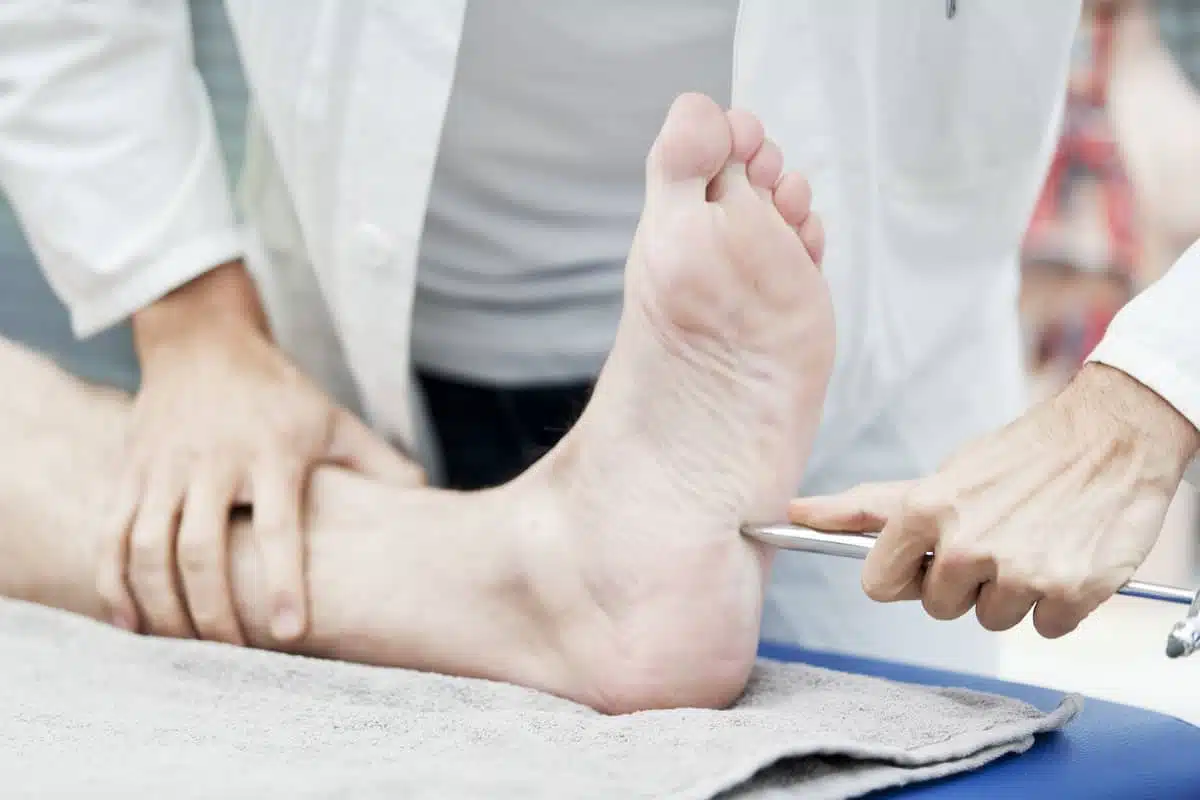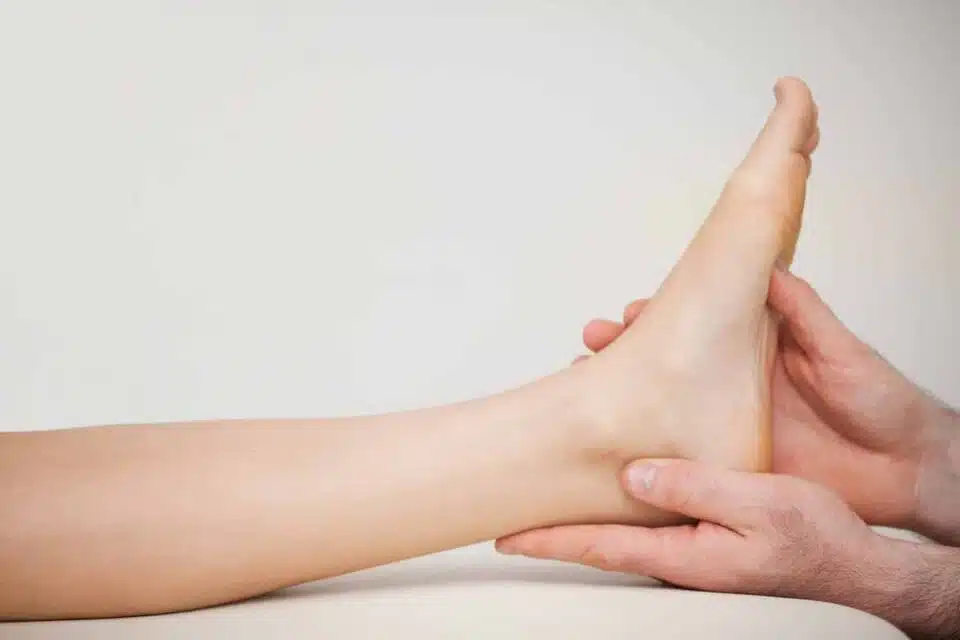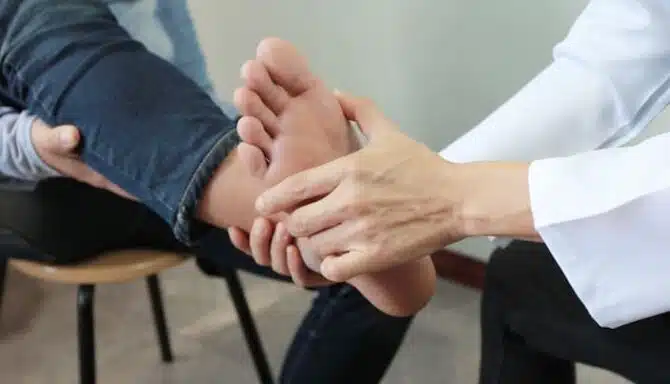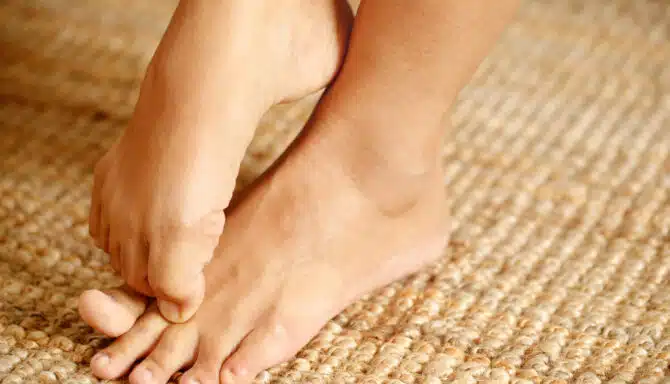Diabetes is a chronic condition that affects millions of people worldwide. Diabetes is particularly prevalent in Canada. The disease affects 1 in 3 Canadians.
One of its common complications is diabetic foot injuries. Proper foot care for diabetes patients is critical as they are at higher risk for foot problems due to nerve damage, poor blood flow and a compromised immune system. Neglecting foot care can lead to severe complications such as infections, ulcers, and even amputation.
But don’t worry; there are several ways to curb diabetes’ effect on the feet and toes. The key is to follow a proper and regular foot care routine. Our latest blog explores the importance of proper foot care for people with diabetes. From regular check-ups to the right shoes, we’ve got the latest information on keeping your feet healthy and happy. Read more below.
What risk(s) does diabetes pose to the feet?
Diabetes puts you at risk for the following foot complications:
- Ulcers: Sores or open wounds may develop due to poor blood circulation and nerve damage.
- Infections: Bacterial or fungal infections can be severe for people with diabetes and quickly spread to the bones, tissues, and blood.
- Foot deformities: Conditions of the feet include hammertoes, bunions, and Charcot’s foot. Foot deformities may develop due to nerve damage and imbalanced forces on the foot.
- Nerve damage: Diabetic neuropathy can cause numbness, tingling, or pain in the feet.
Diabetes symptoms on the feet
People with diabetes may experience some symptoms on their feet, or none at all. These symptoms can affect anyone, but they’re especially important to be on the lookout for if you have, or are at risk of, diabetes. Signs of diabetic foot injuries may include any number of the following:
- Whiteness or a loss of pigment colour around the toes
- Redness in the feet around a cut or wound, or redness in the feet when your foot hangs down
- Bruising and blistering
- Calluses and corns
- Cracks in the skin
- Lumps/bumps on the sole
- Irregularities in the toes, including misaligned toes, bone spurs, swelling and inflammation, or discolouration
- Open sores on the feet that are not healing, or healing very slowly
- Unusual foot odour that won’t go away
If you have diabetes and notice any of these symptoms, contact your doctor or chiropodist immediately.
Why is proper medical foot care necessary for diabetic patients?
Proper foot care is critical for diabetic patients because diabetes can cause nerve and blood vessel damage in the feet. Damage to the nerves and blood vessels contributes to loss of sensation and reduced blood flow in the feet. In tandem, the reduced blood flow compromises your body’s ability to properly heal itself. That means something seemingly minor like a cut or scrape can quickly progress to more severe complications, like infection, ulcers, other foot injuries and even amputation. Because diabetes reduces sensation in your feet, you may not be able to feel these complications. To top it all off, diabetes also affects your vision, so you may not even see any developing foot problems either until it’s too late.
Fortunately, regular foot check-ups with a chiropodist, proper hygiene, and exercise can help prevent these complications and maintain good foot health for diabetes patients.
Likewise, patients with diabetes should seek medical assistance when dealing with foot conditions like corns, calluses, ingrown toenails, or warts. Trying to DIY poses challenges and complications that aren’t worth risking; just a nick when cutting your toes can lead to major problems. Chiropodists can properly treat these common foot conditions in a safe, clean environment so that they don’t develop into bigger issues.
How can I prevent diabetic foot complications?
Diabetic patients should take the following steps for proper foot care:
- Visit a chiropodist regularly for check-ups and preventative professional foot care, such as getting your nails properly trimmed and filed.
- Inspect feet daily for cuts, blisters, swelling, or redness.
- Keep feet clean and dry.
- Wear well-fitting, comfortable shoes and socks to avoid rubbing and pressure.
- Custom orthotics to correct any biomechanical issues and prevent buildup of pressure on parts of the feet.
- Avoid walking barefoot, even at home.
- Exercise regularly to improve circulation.
- Regulate blood sugar levels by following a diet, exercise, and medication regimen as directed by a healthcare provider.
By following these guidelines, diabetic patients can significantly reduce their risk of foot problems and maintain good foot health.
How can a chiropodist help manage diabetic foot conditions?
A chiropodist is a healthcare professional who specializes in diagnosing and treating conditions affecting the feet and lower limbs. They provide routine diabetic foot care, such as cutting and filing nails, removing calluses, and treating skin and nail conditions. As discussed above, it’s highly recommended that diabetes patients get their nails properly trimmed and filed by a chiropodist in order to avoid any cuts, nicks, bruises or ingrown toenails. Remember: diabetes affects your vision too, so DIY foot care in diabetes patients can be dangerous. Something as small as a scrape can lead to serious foot complications.
A foot check-up with a chiropodist aims to identify and treat any problems that could affect the health of the feet and lower limbs and to provide advice and support to help people with diabetes maintain good foot health. During a diabetic foot care appointment, your chiropodist will assess the nails and skin on your feet for any signs of fungal or bacterial infections, corns, calluses, or other skin conditions. They also check the feet for circulation and sensation in order to monitor peripheral vascular disease and diabetic neuropathy – two very common diabetic foot injuries. In addition, chiropodists also have the expertise to treat more complex conditions, such as foot and ankle injuries, and can advise on foot health and the use of orthotics. A chiropodist can perform a biomechanical assessment, evaluate your footwear and may recommend shoes that fit correctly and provide adequate support.














